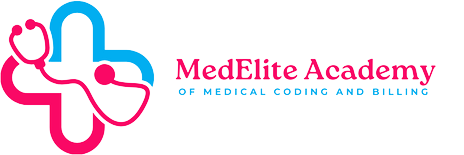Medical coding is the transformation of narrative descriptions of diseases; injuries and health care procedures into numeric or alphanumeric designations (that is, code numbers). The code numbers or detailed in order to accurately describe the diagnoses (that is, what is wrong with the patient) and the procedures performed to test or correct these diagnoses.
Course Provided
Basic Medical Coding Training (BMCT)
CPC (Certified Professional Coder) Training
E/M
Surgery
CCS (Certified Coding specialist) Training
IPDRG
Basic Medical Coding Training (BMCT)
Duration: 1.5 Month (Weekdays 2 hour per day) or 2.5 Month (Weekend @ hours per Day)
Eligibility:
A high school diploma or equivalent is often the minimum requirement. Some programs may require a degree in a related field, but many accept candidates with various educational backgrounds.
Strong attention to detail.
Analytical and problem-solving skills.
Familiarity with medical terminology.
Basic understanding of anatomy and physiology.
Good communication skills.
Topics Covered:
Overview of healthcare organizations, roles, and departments.
Understanding the importance of medical coding in healthcare.
Learning the language of medicine, including terms for anatomy, diseases, and procedures.
Coding for diseases, conditions, and symptoms.
Understanding the structure of ICD-10 codes.
CPT (Current Procedural Terminology):
Coding for medical procedures and services.
Understanding the structure of CPT codes.
Awareness of legal and ethical aspects of medical coding, including compliance with privacy laws (e.g., HIPAA).
Hands-on coding practice to reinforce theoretical knowledge.
Familiarity with coding software commonly used in healthcare settings.
Understanding and adhering to professional standards and ethics in medical coding.
Basic medical coding training provides a foundation for individuals entering the field. Advanced training may be required for specialization in specific areas such as inpatient coding, outpatient coding, or coding for certain medical specialties. Ongoing education is crucial due to updates and changes in coding systems and regulations.
CPC (Certified Professional Coder) Training
Duration: 2.5 Month (Weekdays 2 hour per day) or (Weekend 3 hours per Day)
Topic Covered:
HCPCS Level II
E/M Coding (Evaluation and Management):
Understanding legal and ethical aspects of medical coding, including compliance with privacy laws (e.g., HIPAA).
HIPAA (Health Insurance Portability and Accountability Act) Compliance
Key Points
The Certified Professional Coder (CPC) training is a comprehensive program that equips individuals with the knowledge and skills necessary to work as proficient medical coders. Here are some highlights of CPC training:
In-Depth Understanding of Coding Systems
E/M Coding Expertise
Audit Skills Development
Medical Billing Concepts
HIPAA Compliance Awareness
Preparation for Certification Exam
National Correct Coding Initiative (NCCI)
E/M (Evaluation and Management) Training
Duration: 1.5 Month
Topic Covered
Breaking down E/M codes into key components
Key Components of History
Medical Decision Making (MDM)
Use of Modifiers with E/M Codes
CMS Documentation Guidelines
Time-Based Coding
Compliance with Coding Guidelines
Auditing E/M Services
E/M coding is a nuanced and essential aspect of medical coding, as it directly reflects the nature and complexity of patient encounters. Professionals in healthcare, including coders and providers, must be well-versed in E/M coding to accurately capture the value of the services provided and ensure proper reimbursement.
Surgery
Duration: 2 Months
Topic Covered
CPT (Current Procedural Terminology) Coding
Surgical Anatomy and Physiology
Modifiers in Surgery Coding
Global Surgical Package
Surgical Documentation Requirements
Invasive Procedures and Techniques
Unbundling and Code Linkage
Assistant Surgeon and Co-Surgeon Coding
It's important for surgical coders to stay updated on changes in coding guidelines and surgical procedures within their specific medical specialties. Ongoing education and training are crucial to maintaining proficiency in surgical coding.
CCS (Certified Coding Specialist)Training:
Duration: 2.5 Month
Topic Covered
ICD-10-CM (International Classification of Diseases, 10th Edition, Clinical Modification)
ICD-10-PCS (Procedure Coding System)
HCPCS Level II (Healthcare Common Procedure Coding System)/li>
Clinical Documentation Improvement (CDI)
Compliance and Regulatory Considerations
Coding Guidelines
Clinical Classifications Software (CCS) and Grouper Software
Risk Adjustment Coding
CCS training is designed to prepare individuals to work as coding specialists in hospital inpatient settings. It often involves a combination of classroom instruction, practical exercises, and hands-on coding experience. Obtaining the CCS credential may also require passing a certification exam to demonstrate proficiency in inpatient coding.
IPDRG
Duration: 2.5 Month
Topic Covered
Intrdcution to AHA Coding Handbook.
KCoding Clinic with quarter Explaination
AMA CPT Assistant
Labs and Clinical Pathology
PDX and SDX Selection
Clinical indicators


